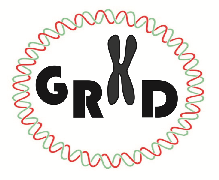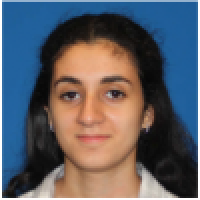Center for Gene Regulation in Health and Disease (GRHD)
Mailing Address
Center for Gene Regulation in Health and Disease (GRHD)
2121 Euclid Avenue, SR 259
Cleveland, OH 44115
Campus Location
2351 Euclid Avenue
Science and Research Building, Room 259
Phone: (216) 687-2516
Fax: (216) 687-5549

Dr. Peng Jiang

Assistant Professor
Location: FH 468
Phone: (216) 687-6972
Fax: (216) 687-6972
The Jiang lab website: https://sites.google.com/view/jiang-lab/
My research is centered on developing statistical methods and data-driven approaches to leverage massive genomic and transcriptomic data to investigate the temporal-spatial variation and dynamics of gene regulation, understanding and tackling the heterogeneity of cellular populations, complex traits and diseases. One unique aspect of my research is that I integrate a variety of statistical/bioinformatic methods, such as network modeling, machine learning, and genomic and transcriptomic data analysis, to leverage complex/large-scale omics datasets. These integrative computational approaches allow us to maximize the knowledge learned from the data to gain novel insights into the fundamental and translational aspects of human diseases.
We are always seeking inspired, highly motivated, and curious graduate students to join our group.

Postdoc

PhD Student

Undergraduate Honor student
Complete List of Published Work in MyBibliography
Selected Publications:
- Toh, H., Thomson, J.A., Jiang, P.#Maternal high-Fiber diet protects offspring against type 2 diabetes. Nutrients 2021, 13, 94. (#Corresponding author)
- Jiang, P.#, Chamberlain, C. S., Vanderby, R., Thomson, J. A., Stewart, R. (2020). TimeMeter assesses temporal gene expression similarity and identifies differentially progressing genes. Nucleic Acids Research. (#Corresponding author)
- Wang, F., Qi, Z., Yao, Y., Yu, G., Feng, T., Zhao, T., Xue, H.H., Zhao, Y., Jiang, P., Bao, L. and Yu, S., 2020. Exploring the stage-specific roles of Tcf-1 in T cell development and malignancy at single-cell resolution. Cellular & Molecular Immunology, pp.1-16.
- Sabin, K.Z., Jiang, P., Gearhart, M.D., Stewart, R. and Echeverri, K. (2019) AP-1(cFos/JunB)/miR-200a regulate the pro-regenerative glial cell response during axolotl spinal cord regeneration. Commun Biol, 2, 91.
- Chasman, D., Iyer, N., Fotuhi Siahpirani, A., Estevez Silva, M., Lippmann, E., McIntosh, B., Probasco, M.D., Jiang, P., Stewart, R., Thomson, J.A.et al.(2019) Inferring Regulatory Programs Governing Region Specificity of Neuroepithelial Stem Cells during Early Hindbrain and Spinal Cord Development. Cell Syst, 9, 167-186 e112.
- Vermillion, K.L., Bacher, R., Tannenbaum, A.P., Swanson, S., Jiang, P., Chu, L.F., Stewart, R., Thomson, J.A. and Vereide, D.T. (2018) Spatial patterns of gene expression are unveiled in the chick primitive streak by ordering single-cell transcriptomes.Dev Biol.
- Phillips, M.J.*, Jiang, P.*, Howden, S., Barney, P., Min, J., York, N.W., Chu, L.F., Capowski, E.E., Cash, A., Jain, S.et al.(2018) A Novel Approach to Single Cell RNA-Sequence Analysis Facilitates In Silico Gene Reporting of Human Pluripotent Stem Cell-Derived Retinal Cell Types. Stem Cells, 36, 313-324. (* Co-first authors)
- Langer, K.B., Ohlemacher, S.K., Phillips, M.J., Fligor, C.M.,Jiang, P., Gamm, D.M. and Meyer, J.S. (2018) Retinal Ganglion Cell Diversity and Subtype Specification from Human Pluripotent Stem Cells. Stem Cell Reports, 10, 1282-1293.
- Jiang, P., Nelson, J.D., Leng, N., Collins, M., Swanson, S., Dewey, C.N., Thomson, J.A. and Stewart, R. (2017) Analysis of embryonic development in the unsequenced axolotl: Waves of transcriptomic upheaval and stability. Dev Biol, 426, 143-154.
- Jiang, P.#, Hou, Z.G., Bolin, J.M., Thomson, J.A. and Stewart, R. (2017) RNA-Seq of Human Neural Progenitor Cells Exposed to Lead (Pb) Reveals Transcriptome Dynamics, Splicing Alterations and Disease Risk Associations. Toxicological Sciences, 159, 251-265. (#Corresponding author)
- Barry, C., Schmitz, M.T., Propson, N.E., Hou, Z., Zhang, J., Nguyen, B.K., Bolin, J.M., Jiang, P., McIntosh, B.E., Probasco, M.D.et al.(2017) Uniform neural tissue models produced on synthetic hydrogels using standard culture techniques. Exp Biol Med (Maywood), 242, 1679-1689.
- Barry, C., Schmitz, M.T., Jiang, P., Schwartz, M.P., Duffin, B.M., Swanson, S., Bacher, R., Bolin, J.M., Elwell, A.L., Mclntosh, B.E.et al.(2017) Species-specific developmental timing is maintained by pluripotent stem cells ex utero. Developmental Biology, 423, 101-110.
- Lin, L.*, Jiang, P.*, Park, J.W., Wang, J., Lu, Z.X., Lam, M.P., Ping, P. and Xing, Y. (2016) The contribution of Alu exons to the human proteome. Genome Biol, 17, 15. (* Co-first authors)
- Jiang, P.#, Thomson, J.A. and Stewart, R. (2016) Quality control of single-cell RNA-seq by SinQC. Bioinformatics,32, 2514-2516. (#Corresponding author)
- Schwartz, M.P., Hou, Z., Propson, N.E., Zhang, J., Engstrom, C.J., Santos Costa, V., Jiang, P., Nguyen, B.K., Bolin, J.M., Daly, W.et al.(2015) Human pluripotent stem cell-derived neural constructs for predicting neural toxicity. Proc Natl Acad Sci U S A, 112, 12516-12521.
- Roadmap Epigenomics Consortium (…Jiang P.…), Kundaje A. et al. (2015) Integrative analysis of 111 reference human epigenomes. Nature,518, 317-330.
- Leng, N., Chu, L.F., Barry, C., Li, Y., Choi, J., Li, X.M., Jiang, P., Stewart, R.M., Thomson, J.A. and Kendziorski, C. (2015) Oscope identifies oscillatory genes in unsynchronized single-cell RNA-seq experiments. Nature Methods, 12, 947-950.
- Hou, Z., Meyer, S., Propson, N.E., Nie, J., Jiang, P., Stewart, R. and Thomson, J.A. (2015) Characterization and target identification of a DNA aptamer that labels pluripotent stem cells. Cell Res, 25, 390-393.
- Hou, Z.*, Jiang, P.*, Swanson, S.A., Elwell, A.L., Nguyen, B.K., Bolin, J.M., Stewart, R. and Thomson, J.A. (2015) A cost-effective RNA sequencing protocol for large-scale gene expression studies. Sci Rep, 5, 9570. (* Co-first authors)
- Jiang, P., Meyer, S., Hou, Z., Propson, N.E., Soh, H.T., Thomson, J.A. and Stewart, R. (2014) MPBind: a Meta-motif-based statistical framework and pipeline to Predict Binding potential of SELEX-derived aptamers. Bioinformatics, 30, 2665-2667.
- Boudreau, R.L., Jiang, P., Gilmore, B.L., Spengler, R.M., Tirabassi, R., Nelson, J.A., Ross, C.A., Xing, Y. and Davidson, B.L. (2014) Transcriptome-wide discovery of microRNA binding sites in human brain. Neuron,81, 294-305.
- Ramachandran, S., Karp, P.H., Osterhaus, S.R., Jiang, P., Wohlford-Lenane, C., Lennox, K.A., Jacobi, A.M., Praekh, K., Rose, S.D., Behlke, M.A.et al.(2013) Post-Transcriptional Regulation of Cystic Fibrosis Transmembrane Conductance Regulator Expression and Function by MicroRNAs. Am J Resp Cell Mol, 49, 544-551.
- Heinicke, L.A., Nabet, B., Shen, S., Jiang, P., van Zalen, S., Cieply, B., Russell, J.E., Xing, Y. and Carstens, R.P. (2013) The RNA binding protein RBM38 (RNPC1) regulates splicing during late erythroid differentiation. PLoS One, 8, e78031.
- Ramachandran, S., Karp, P.H., Jiang, P., Ostedgaard, L.S., Walz, A.E., Fisher, J.T., Keshavjee, S., Lennox, K.A., Jacobi, A.M., Rose, S.D.et al.(2012) A microRNA network regulates expression and biosynthesis of wild-type and DeltaF508 mutant cystic fibrosis transmembrane conductance regulator. Proc Natl Acad Sci U S A, 109, 13362-13367.
- Lu, Z.X., Jiang, P.and Xing, Y. (2012) Genetic variation of pre-mRNA alternative splicing in human populations. Wiley Interdiscip Rev RNA,3, 581-592.
- Kim, J.*, Zhao, K.*, Jiang, P.*, Lu, Z.X., Wang, J., Murray, J.C. and Xing, Y. (2012) Transcriptome landscape of the human placenta. BMC Genomics, 13, 115. (* Co-first authors)
- Dittmar, K.A.*, Jiang, P*., Park, J.W., Amirikian, K., Wan, J., Shen, S., Xing, Y. and Carstens, R.P. (2012) Genome-wide determination of a broad ESRP-regulated posttranscriptional network by high-throughput sequencing.Mol Cell Biol, 32, 1468-1482. (* Co-first authors)
- Shen, S., Lin, L., Cai, J.J., Jiang, P., Kenkel, E.J., Stroik, M.R., Sato, S., Davidson, B.L. and Xing, Y. (2011) Widespread establishment and regulatory impact of Alu exons in human genes. Proc Natl Acad Sci U S A, 108, 2837-2842.
- Lu, Z.X.*, Jiang, P.*, Cai, J.J. and Xing, Y. (2011) Context-dependent robustness to 5' splice site polymorphisms in human populations. Hum Mol Genet, 20, 1084-1096. (* Co-first authors)
- Liu, S., Lin, L., Jiang, P., Wang, D. and Xing, Y. (2011) A comparison of RNA-Seq and high-density exon array for detecting differential gene expression between closely related species. Nucleic Acids Research, 39, 578-588.
- Warzecha, C.C., Jiang, P., Amirikian, K., Dittmar, K.A., Lu, H.Z., Shen, S.H., Guo, W., Xing, Y. and Carstens, R.P. (2010) An ESRP-regulated splicing programme is abrogated during the epithelial-mesenchymal transition. Embo J, 29, 3286-3300.
- Lin, L., Shen, S., Jiang, P., Sato, S., Davidson, B.L. and Xing, Y. (2010) Evolution of alternative splicing in primate brain transcriptomes. Hum Mol Genet, 19, 2958-2973.
- Lin, L., Liu, S., Brockway, H., Seok, J., Jiang, P., Wong, W.H. and Xing, Y. (2009) Using high-density exon arrays to profile gene expression in closely related species. Nucleic Acids Res, 37, e90.
- Lin, L., Jiang, P., Shen, S., Sato, S., Davidson, B.L. and Xing, Y. (2009) Large-scale analysis of exonized mammalian-wide interspersed repeats in primate genomes. Hum Mol Genet, 18, 2204-2214.
- Tong, J., Jiang, P.and Lu, Z.H. (2008) RISP: a web-based server for prediction of RNA-binding sites in proteins. Comput Methods Programs Biomed, 90, 148-153.
- Lin, L., Shen, S., Tye, A., Cai, J.J., Jiang, P., Davidson, B.L. and Xing, Y. (2008) Diverse splicing patterns of exonized Alu elements in human tissues. PLoS Genet, 4, e1000225.
- Jiang, P., Wu, H., Wei, J., Sang, F., Sun, X. and Lu, Z. (2007) RF-DYMHC: detecting the yeast meiotic recombination hotspots and coldspots by random forest model using gapped dinucleotide composition features. Nucleic Acids Res, 35, W47-51.
- Jiang, P., Wu, H., Wang, W., Ma, W., Sun, X. and Lu, Z. (2007) MiPred: classification of real and pseudo microRNA precursors using random forest prediction model with combined features. Nucleic Acids Res, 35, W339-344.
- Jiang, P., Wu, H., Da, Y., Sang, F., Wei, J., Sun, X. and Lu, Z. (2007) RFRCDB-siRNA: improved design of siRNAs by random forest regression model coupled with database searching. Comput Methods Programs Biomed, 87, 230-238.
- Jiang, P., Sun, X. and Lu, Z. (2007) Analysis of synonymous codon usage in Aeropyrum pernix K1 and other Crenarchaeota microorganisms. J Genet Genomics, 34, 275-284.
Mailing Address
Center for Gene Regulation in Health and Disease (GRHD)
2121 Euclid Avenue, SR 259
Cleveland, OH 44115
Campus Location
2351 Euclid Avenue
Science and Research Building, Room 259
Phone: (216) 687-2516
Fax: (216) 687-5549
